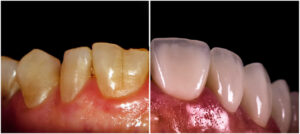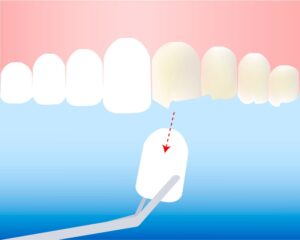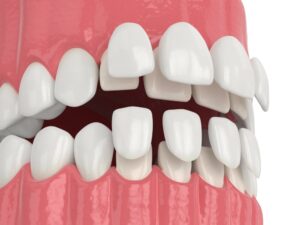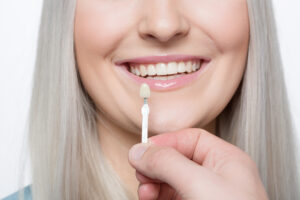The recovery from dental implants is the last of the 3 phases in which the dental treatment of dental implants is divided. However, it is not the least important because it is the last stage of treatment. If you are planning to get dental implants, or even if you have already had them, this article on dental implant recovery is written especially for you.
Today in our dental blog we will analyze in detail how this last phase of treatment occurs, how important it is and what is the estimated time for the recovery of dental implants. Read to the end, because it will probably be very useful to you.
Miami Perfect Smile: the best dental implants in Miami
If you are looking for dental implant treatment in Miami, you have just come to the right place. In our clinic, we have everything you need to make your smile look like you always dreamed of: perfect, radiant, fresh, and natural. We have dental veneers treatments, smile design, dental implants, and others. Follow the link we just inserted, access our contact information, and schedule your first appointment to find out all the details.
Today we bring you the details about how the recovery from dental implants occurs. We know that this issue is something that may concern those who want to get implants, as well as those who have already had them and are going to enter the last phase of the process. At Miami Perfect Smile we use the best quality materials and state-of-the-art technology. In our facilities, we guarantee the careful and specialized treatment that you deserve. Review the opinions of our patients and check their satisfaction with our treatment. Pleased patients are our best letter of introduction.

We accept all types of insurance with which the patient is covered. And something important: our prices is very reasonable. You can investigate, and you will see our excellent relationship between quality and price. It is worth noting that many people travel to Florida to undergo dental implant treatment in Miami . Despite the travel expenses, our prices are still more affordable than those in other States.
The 3 basic phases of the dental implant procedure
To fully understand what dental implant recovery is, we must understand the full context in which this phase of treatment is located. As we said above, the recovery phase from the implants is the third and last in this procedure. Briefly understanding what the dental implant process consists of will allow us to assess the importance of the recovery phase.
The installation of all types of dental implants is carried out following the same medical protocol, which is strictly adhered to from one clinic to another. There may be variations in some details, which will depend on the technique used and the patient’s oral conditions. However, basically, the procedure to place dental implants is divided into 3 fundamental phases. Let’s see below what they are and what they consist of in order.
Here we will be referring to the procedure of intraosseous or endosseous dental implants, which are the most widely used today. We will not refer to the procedure of dental implants of other types. This is because either they are falling into disuse (for example, juxtaosseous implants) or they are too recent and their procedure is still under discussion (for example, immediate loading implants).
Phase 1 of the dental implant procedure: Study and oral preparation
In this first phase, several studies are carried out on the patient, in order to determine their dental and general health status. It is important that the implantologist (implant specialist) knows how the patient’s mouth, teeth, tissues, and bones are. The dentist can take photographs, make digital and physical models for study, or perform radiographic tests. A cone beam computed tomography, or CBTC, can even be performed to obtain a three-dimensional image of the space where the implants will later be installed.
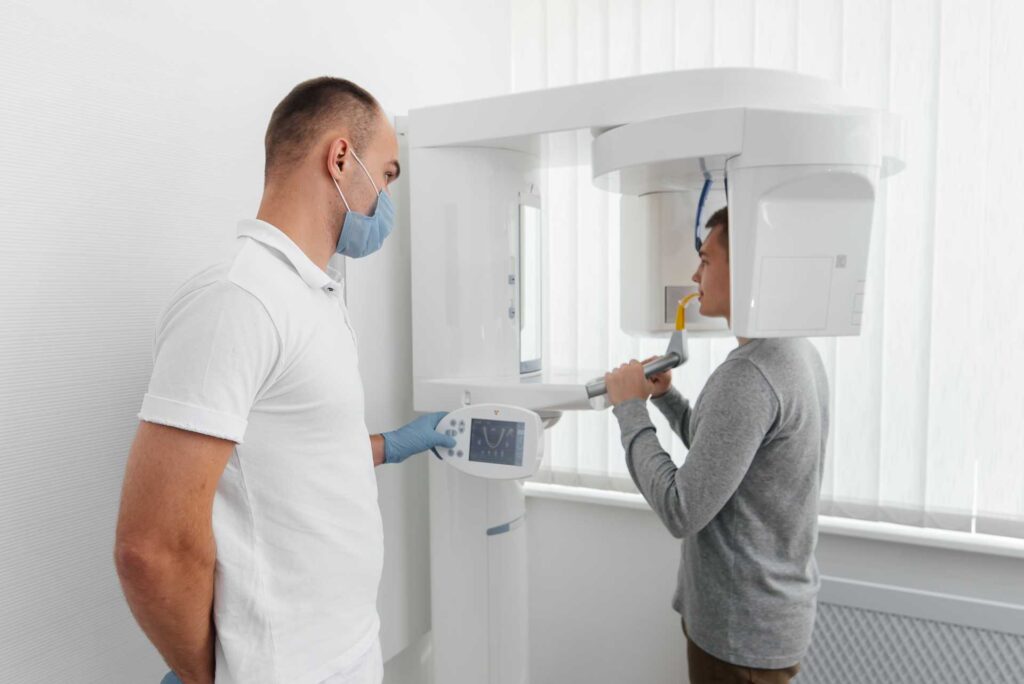
A team of health professionals can also intervene, in cases of patients who have a disease that may prevent the osseointegration of the implants from occurring. In this phase, some previous surgeries can also be done to prepare the conditions to install the implants. For example, when the jawbone is not large and strong enough, bone grafting is required. Likewise, if the root of a tooth has to be extracted to open the space for the implant bolt, it will be done at this stage.
Phase 2 of the dental implant procedure: Incision and placement
At this stage, the installation surgery of dental implants is carried out. It is an outpatient surgery, which does not take more than 20 minutes. This advantage is due to the fact that in the preparatory period many health situations were resolved, the ground was prepared and the places where the dental implants would be installed were planned. This phase can be done in two different ways:
- The post and the abutment are placed at the same time: One of the ways is to place the post or root and the abutment or prosthetic attachment at the same time. This allows for a single healing and recovery period, after which the prosthesis can be installed.
- The pin is placed alone: If only the pin that will serve as the root of the implant is placed, a second intervention will have to be carried out to uncover the gum and install the abutment or prosthetic attachment. In this way, the recovery process will be done with the implant pin covered by the gum. Despite the inconvenience, this procedure is often chosen.
In either case, the recovery phase will proceed in the same way. Only in the event that only the pin is placed, after recovery, another small outpatient surgery will have to be performed to separate the gum above the implant and to be able to install the abutment, which will thus be exposed.
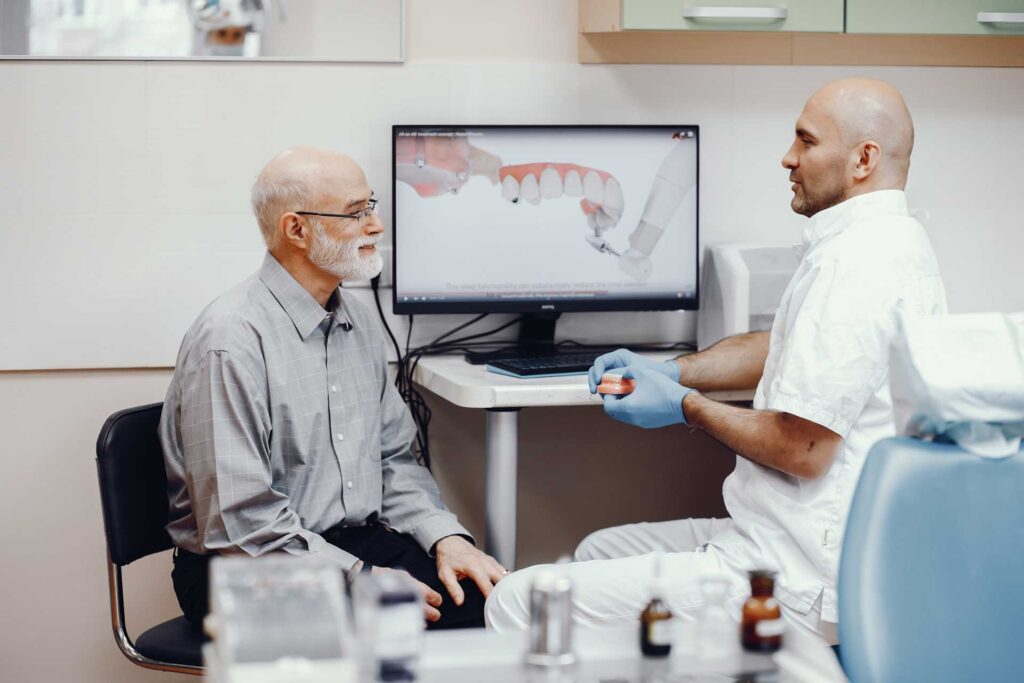
Phase 3 of the dental implant procedure: Recovery
As we said at the beginning, it is not because it is the last of the phases that it is less important. The success of the entire dental implant installation procedure will also depend on the recovery phase being carried out correctly.
This third and last phase will largely depend on the care that each patient maintains with respect to the implants from the moment they are placed since everything will basically take place at home. That is why it is of the utmost importance that the recently operated clarify all doubts regarding the recovery of dental implants, with their doctor. Giving you many of the tips and information is that we have written this article.
Stages of the recovery phase from dental implants
Although the phase of study, preparation, and surgical intervention in which the implants are installed, completely depend on the performance of the team of specialists, the final success of the procedure is achieved only through a correct recovery. This recovery phase of dental implants will depend on patients maintaining all the relevant care.
For this, it is important that the patient understands and complies with all the indications given by the dentist. The implant being successfully anchored to the bone depends on this care. The recovery time from dental implants varies between 3 and 6 months in total. How short or long this phase is will depend on the conditions and the rate of recovery of each patient.
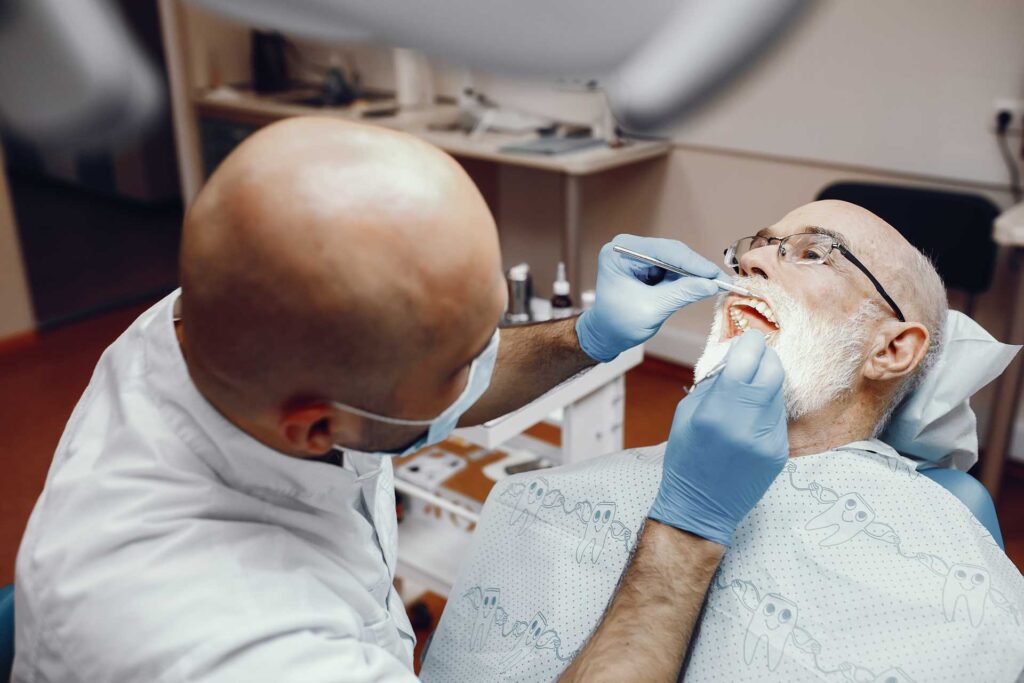
1) Postoperative period: an initial stage in the recovery from dental implants
The first stage of recovery takes place during the first 10 days, after having carried out the intervention phase or installation of the implants. Because the implants are placed through dental surgery, we can talk about the postoperative period in the recovery of dental implants. The importance of the postoperative period lies in the fact that the wound must heal correctly, without complications of infection.
Postoperative symptoms
In this first postoperative stage, it is normal to feel any of the 6 symptoms that we will list below. These symptoms can be experienced in isolation, several together, or all at the same time. The duration of the postoperative period can be from 7 to 14 days, during which it is normal to feel some discomfort or pain. Normal symptoms are as follows:
- Wound bleeding: Some patients may have a slight bleeding in the wound that was made after dental implant surgery. The most common outcome is that this bleeding stops after 1 or 2 hours of the intervention. If bleeding persists, dry gauze should be placed over the wound and held down with a bite for 20-45 minutes. If blood is still coming out, the process should be repeated. If the bleeding lasts more than a day (which happens in a small percentage of cases), you should visit the clinic.
- Discomfort, pain, or general discomfort in the area: Feeling some pain, or discomfort is normal during the postoperative period. As soon as the anesthetic begins to wear off, it is best to take analgesics (pain medication). If the pain is moderate or mild, ibuprofen which is widely sold, without the need for a prescription, will suffice. But if the pain is severe, the medication prescribed by the dentist should be taken as directed and probably with food. In no case should the patient self-medicate. In this, it is extremely important to consult with the doctor about what can be taken and about the drug consumption plan.
- Inflammation or swelling: During the first 2 to 3 days it is completely normal for the surgery area to swell. After this time, the inflammation should begin to decrease. Depending on each patient, the inflammation can be mild or severe. There are cases in which the swelling lasts for several days, or even bruises appear on the face. To neutralize the inflammation, it is recommended to put an ice pack on the outside of the inflamed area for 20 minutes at a time. This is for the first 24 hours. Ice will help reduce swelling and minimize pain. After the first 24 hours, moist heat compresses can be applied. You should always check this with your doctor.
- Low-grade fever: It is normal to have a slight fever up to 38 degrees within the first 72 hours after surgery.
- Numbness: Partial loss of sensation may occur in the lower lip or chin. This occurs especially when dental implants have been installed in the jaw. This numbness should go away after several days, although it can sometimes last for weeks. When numbness persists for many months, it may be due to unexpected contact of the implant and the old roots of the teeth with the nerve. It is something that must be reported immediately to the dentist.
- Nosebleeds: Because the roots of the upper teeth are sometimes very close to the sinuses of the face, there may be some nosebleeds in the days following dental implant surgery. It may also be normal to have a stuffy nose or some nasal drainage.

If everything goes well in the recovery, after about 10 or 14 days the symptoms should decrease until they disappear completely. In case the symptoms persist or worsen and become more intense, it is important to let the dentist know and schedule an appointment.
Some restrictions and recommendations during the postoperative period
It is important that patients strictly follow all the care recommendations that must be taken in the postoperative phase. The success of wound healing will depend on these cares. On the other hand, complying with these restrictions and recommendations will prevent the patient from suffering any type of complications that may be caused by negligence. Let’s see some of the recommendations from dentists for the postoperative period.
- Do not spit during the first 24 hours: This will prevent the formation of clots from being removed so that the wound can heal. A tissue can be used to wipe the mouth gently when necessary. The other option is to swallow your saliva.
- Do not use a straw to drink in the first 24 hours: It is recommended to drink directly from the glass or cup, but not with straws. The straw forces fluid to push more pressure into your mouth, which can dislodge forming clots and cause bleeding.
- Do not rinse or brush the first 24 hours: It is important to avoid brushing and mouthwashes during the first 24 hours. Both rinsing and brushing can break up forming clots and cause bleeding. After these hours, you can proceed to normal oral hygiene, always taking great care not to damage the operated area with the brush bristles.
- Salt water mouth rinses: On the second day, It is recommended to use salt water mouth rinses. They can be made with warm water, at a ratio of 1 teaspoon of salt for every 8 ounces of water. Rinsing should be done gently, moving all of the solutions around in the mouth. Salt is a great antiseptic, it will help eliminate possible pathogens that can cause infections.
- No smoking: Ideally, you should not smoke at all during the entire dental implant recovery process, from 3 to 6 months. But, if this is not possible for a patient who smokes, it is recommended to at least avoid smoking for the first 24 hours, and if possible, during the following 2 weeks, which are the most critical. Smoking can cause clots to detach, create an infection, weaken the implant, and hinder osseointegration.
- Do not touch the wound with your hands or tongue: To avoid infection or bleeding, the wound should not be touched, nor should fingers or hands be placed in the mouth. Likewise, you should avoid taking your tongue towards the area where the implant is. All of this can cause the stitches to loosen, jeopardizing wound healing.
- Soft foods and not hot the first few days: During the postoperative days it is important to eat a soft diet, so as not to force your mouth and avoid hurting the wound with hard foods. Patients who maintain this type of diet heal faster. Although certain harder foods can be eaten as the days go by, the following should be avoided at all times: French fries, popcorn, nuts or seeds, etc. It is recommended to eat: cooked cereals, yogurt, scrambled eggs, cottage cheese, sauces, broths, soups, ground meat, finely chopped fish and chicken, macaroni, soft cheese, soft bread, mashed potatoes or others, jelly, cake, milkshakes, ice cream, etc. On the other hand, it is better to eat foods that are not hot; they are recommended cold or at room temperature. You can eat as soon as the anesthesia wears off. When returning to a normal diet, it is important to avoid chewing directly on the implant sites.
- Do not drink alcohol: Alcohol intake should be avoided for the first 24 hours, and preferably maintained for the next 2 weeks. Alcohol will slow down the healing process, plus it can have an anticoagulant effect and be an agent that causes infection.
- Having little physical activity: Maintaining a relaxed attitude and doing little physical activity is important for the recovery of dental implants in the postoperative stage. Avoid bending your body, and also do not lower your head, do not lift heavy objects, do not make great efforts, or do physical exercises. Adhering to this will prevent any bleeding from the wound and focus the body’s forces on recovery.
- Drink plenty of fluids: Staying well hydrated is very positive for good postoperative recovery. Basically, you have to drink water and other natural drinks that are neutral, not very acidic. The intake of carbonated beverages, such as soft drinks, malts, etc., should be avoided.
- Do not blow your nose hard or sneeze hard: Especially in cases of upper implants (ie maxillary), you should avoid blowing your nose during the postoperative days. Avoid strong sneezes, as well as the act of blowing your nose. All of that can lead to unwanted sinus pressure. In case a sneeze is imminent, it is recommended to keep your mouth open.
- Avoid air travel and scuba diving: Activities that increase nasal pressure should be avoided for the duration of your dental implant recovery. You must not fly in an airplane, go down to the bottom of the sea to dive or ride in underwater vehicles. This excess pressure can cause nosebleeds.
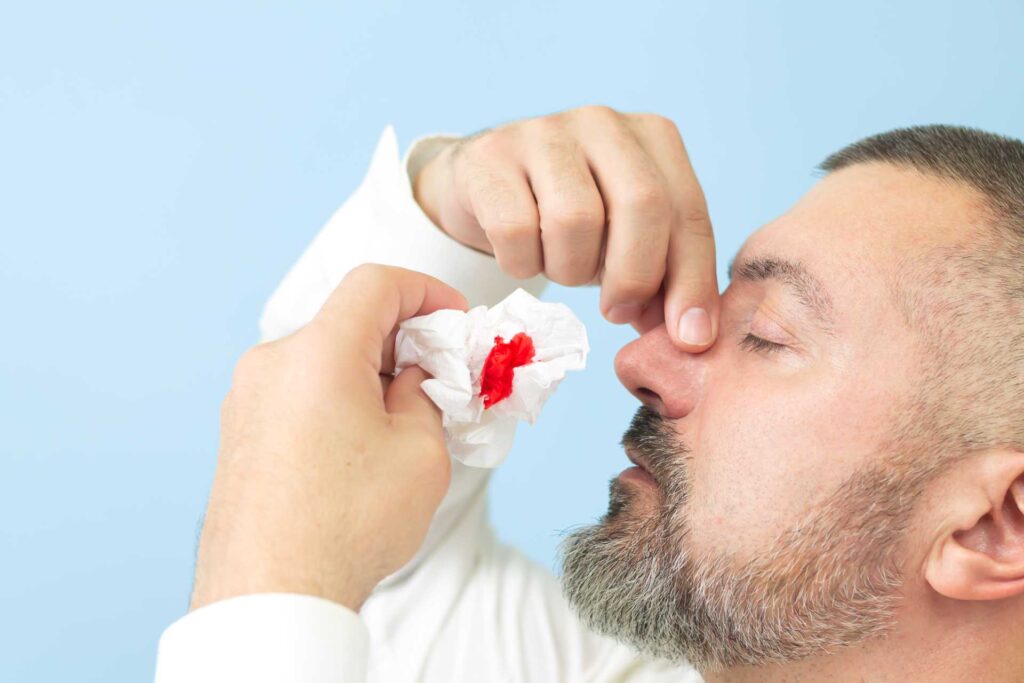
2) Osseointegration period: final stage in the recovery from dental implants
After the postoperative period, which is the most critical and uncomfortable, comes a much more bearable stage in the recovery of dental implants. At this time the recovery process is hardly noticeable physically. The patient can begin to carry out all their daily activities without feeling discomfort or limitations. However, it is still advisable to take some precautions to facilitate recovery and not damage the osseointegration process of dental implants.
What is osseointegration of dental implants?
It will depend on osseointegration that the implant remains fixed, that is, that it successfully anchors itself to the bone. A well-anchored implant will be able to support the future prosthesis without problems, and will not be damaged by the high degree of pressure exerted by biting during normal chewing.
In contrast, an implant that is not well integrated into the bone can become loose and fall out, or have to be removed. Hence the importance of this period. Osseointegration can take place in a period ranging from 3 to 6 months. However, it must be the specialist, through examination, who determines when the implant will be ready for the prosthesis. The duration of osseointegration varies from one patient to another, so it is not worth counting the time.
Osseointegration is nothing more than the process of the natural union of the bone with the implant. Dental implants are made of titanium (or to lesser extent zirconium). Titanium is a powerful metallic alloy, it is completely inert. Thanks to this property of titanium of not modifying its molecular structure when in contact with the oral environment, dental implants are biocompatible and bioinert. If the implant were made of any other material, its insertion into the bones would cause a serious reaction from the immune system.
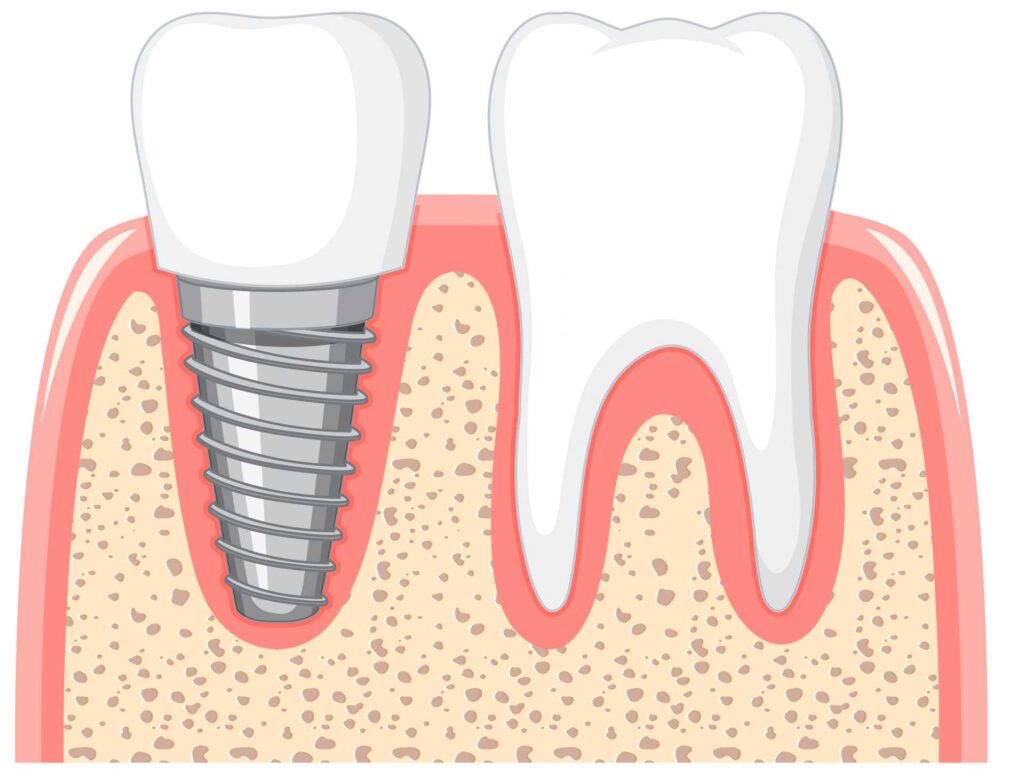
During this second stage of recovery from dental implants, the jaw bone where the implant is inserted will grow around it. This will cause the implant to be completely fused to the bone. Osseointegration allows the implant to be fully functional and able to support all-oral functions such as chewing, phonation, and digestion.
Some recommendations to take care of the implants in the osseointegration period
Although the postoperative period that requires much more demanding care has passed, the health of the implants must continue to be cared for. During this period of osseointegration, it is still necessary to maintain good habits, which will help the implant to anchor itself correctly in the bone. Some of the recommendations at this time are:
- Maintain good oral hygiene : Hygiene remains an essential habit to keep dental implants in good health during recovery. You should brush your teeth after every meal and spend at least 2 minutes brushing each implant. In this way we will avoid infections due to the accumulation of food and pathogens around the implants.
- Avoid tobacco and alcoholic beverages : As we have already mentioned, both tobacco and alcoholic beverages can hinder the process of osseointegration of the implants. This measurement is maintained for this stage. In addition, they can also be infectious agents. The ideal is not to consume these products during the months of the osseointegration period. In case the patient feels a great need for these, they should be consumed as moderately as possible.
- Disease care : Patients suffering from diseases such as diabetes, cardiovascular disorders, active periodontal disease, osteoporosis, infection in adjacent teeth, among others, should be seen frequently during this period. Avoiding crises and keeping these diseases as controlled as possible will encourage the implant to finish fusing with the bone.
- Avoid strong blows: One blow strong can remove the implant from its place. During this period we must try not to practice sports or activities that put the health of the implants at risk.
- Do not bite food or hard objects: There are those who have the habit of biting objects to release stress. This is a bad habit to avoid because it will cause excessive pressure on dental implants. Chewing hard foods with the area where the implants are located should also be avoided.
- Control bruxism : Bruxism is another factor that can threaten the correct osseointegration of the implants. This is because by squeezing and grinding our teeth against each other, we may be putting too much pressure on the implants and constantly removing them from their place. For patients with a lot of bruxism, the ideal is to use a discharge splint.

Possible complications during the recovery from dental implants
There are some possible complications that can affect the recovery process from dental implants. These complications are part of the answer to the question of what is the risk of dental implants, which is frequently asked by patients.
The complications go beyond the normal symptoms that we saw that can appear during the postoperative period. A complication is considered to exist when the event persists over time and when damage involving a certain degree of severity is generated. In any of these situations, we must go to the dentist immediately. Let’s see what these possible complications consist of.
Infection: When an infection occurs during implant surgery, it first manifests itself as severe pain. Other symptoms are edema and purulent exudates. The dentist will try to cure this by removing 1 or 2 suture stitches to drain the infection well and then move on to washing. Subsequently, a plan of antibiotics, anti-inflammatories and analgesics is prescribed. Frequent check-ups will also be done until the infection subsides completely.
Breakage in the suture: If we consume any hard food before the indicated time, we can cause the breakage of the suture of the wound. This can lead to bleeding, plus it will make the healing process much slower and more painful. In this case, we must go to the dentist to seal the wound again.
Necrosis due to lack of vascularization : Rarely, the sutures are too tight, to the point that they can prevent the correct vascularization of the area. This lack of blood supply produces necrosis or dehiscence at the margins of the wound over the days. The dentist should clean the wound with hydrogen peroxide and apply antibiotic ointment. Subsequent washings will then be carried out until the wound heals correctly.
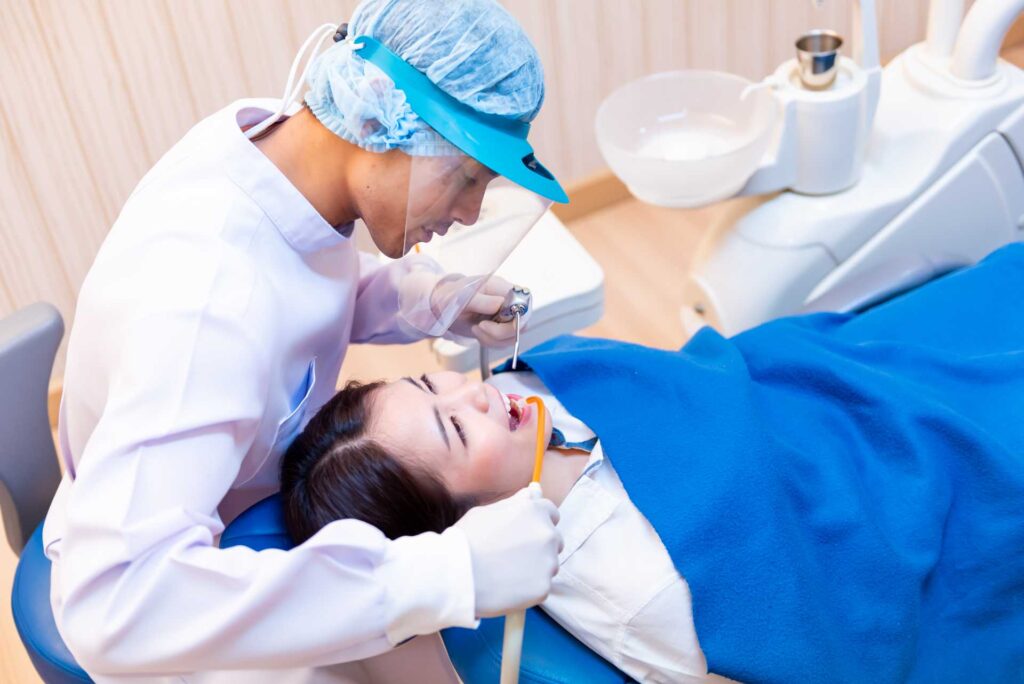
Implant loosening: In very rare cases the implant may be rejected by the bone, causing it to loosen. Sometimes, however, the implant can loosen due to the effect of an infection. In these cases, the dentist will proceed to extract it to avoid any type of bone injury. The subsequent procedure will depend on each case.
Implant fracture: Strong trauma can disrupt the implant bolt, which is known as an implant fracture. These types of fractures also usually occur due to fatigue of the material, due to the passage of time of use of the implant (which occurs especially in implants placed in the posterior area of the mouth). Also, patients suffering from bruxism can cause the fracture of the implants. The solution is to remove the implant.
Chronic sinusitis: Sometimes, due to the proximity between the root of the tooth and the nasal sinus, a small opening is produced that joins the mouth and the sinus during surgery. This brings consequences such as a flow of air and liquids between the mouth and the nose. The dentist will take the necessary precautions to help healing. This small hole usually heals, but it does so slowly and with difficulty.
Continuous pain: This pain is annoying and is caused by the dental nerve. It is the result of the dental implant being very close to the nerve or in contact with it, which causes discomfort. You should go to the dentist to remedy this condition.
Peri-implantitis: This is a chronic inflammation of the tissues around the implant. This causes a loss of the bone support in which the implant has been integrated. The cause of this inflammation can be a fibrointegration of the implant, necrosis of the gum, or loss of the healing plug. In any case, they are disorders that only the dentist can cure.



